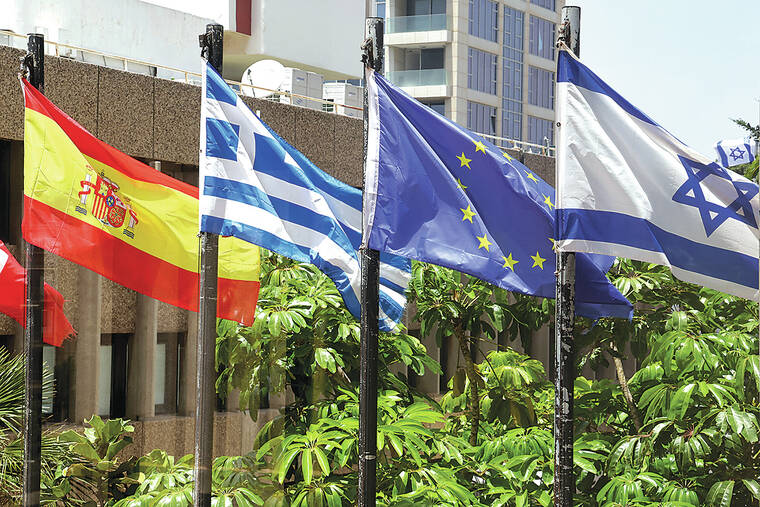Israel recalls Ireland, Norway, Spain envoys over Palestine
Israel recalled its ambassadors to Ireland, Norway and Spain after they announced they would recognize a Palestinian state.
The co-ordinated moves by the European nations underscores how Israel’s war against Hamas in Gaza is focusing global attention on the issue of statehood for Palestinians and hurting Israel’s relations with the rest of the world.
“Israel will not be complacent against those who undermine its sovereignty and endanger its security,” Foreign Minister Israel Katz said on Wednesday in a statement. The countries are sending a message that “terrorism pays.”
Around 140 nations already recognize a Palestinian state, but very few in Europe have. Among them are Hungary and Sweden.
“This is an historic and important day for Ireland and for Palestine,” Irish Prime Minister Simon Harris told reporters on Wednesday morning. “It is an expression of our view that Palestine holds and should be able to vindicate the full rights to the state, including self determination, self governance, territorial integrity and security.”
Ireland, Norway and Spain plan to formally recognize a Palestinian state — comprising Gaza and the West Bank — on May 28.
Harris and his Spanish counterpart Pedro Sanchez reiterated calls for an end to the war in Gaza that’s now in its eighth month and which has devastated the Mediterranean enclave. They and Norway have been among the European countries most critical of Israel for continuing the conflict.
Israeli Prime Minister Benjamin Netanyahu says the war is necessary to destroy Hamas, designated a terrorist organization by the U.S. and European Union.
Netanyahu has spent most of his life rejecting a Palestinian state, although in 2009 he said he’d accept a demilitarized one as long as the Palestinians recognized Israel as a Jewish state. The Palestinian leadership rejected that, and in recent years, Netanyahu and the Israeli public have stepped away from supporting two states.
This is due to the growth of religious nationalism in Israel and a sense that violent forces like Hamas would push aside more moderate parties in any Palestinian country. In addition, the refusal by the Palestinian Authority — which runs parts of the West Bank — to properly condemn Hamas’s attack of Oct. 7, which started the war, have solidified those concerns.
Israel controls many aspects of security in Gaza and the West Bank, including their air space. Its officials fear losing those powers if the Palestinians get an independent country and have argued that they would have far less ability to prevent Oct. 7-style assaults in the future.
The U.S., Israel’s most important ally, backs a two-state solution, but says it can only come about through negotiations between the Israelis and Palestinians. In recent months, President Joe Biden’s signaled a state of Palestine could be created with strict limits on its military forces so as to reassure Israel.
France’s government said that while “recognition of a Palestinian state is not a taboo,” it does not yet think “conditions have been met for this decision to have a real impact.”
The decision by Ireland, Norway and Spain was praised by both the PA and Hamas, which nominally governs Gaza.
The PA said the recognitions are “in line with international law,” while Hamas said it was “an important step on the path of affirming our right to our land and an independent Palestinian state with Jerusalem as its capital.”
Sanchez stressed the decision was about “peace” and not made against Israel or in favor of Hamas. The Iran-backed organization is a “terrorist group that must disappear,” he said.
Irish foreign minister Micheal Martin made similar comments, saying it should not be “misrepresented as a hostile act” toward Israel.


